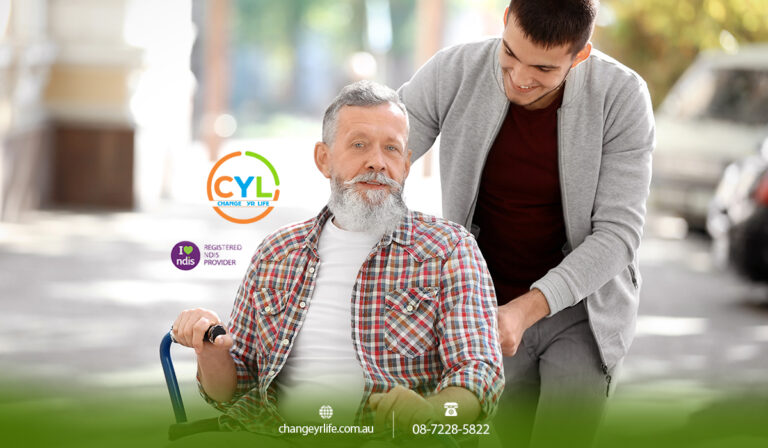NDIS 2025: Holistic Approaches to Mental Wellbeing
Mental health support in Australia is undergoing a quiet but meaningful transformation. As we move through 2025, the National Disability Insurance Scheme (NDIS) is embracing broader, more integrated forms of care especially for individuals living with psychosocial disabilities. Well, NDIS Mental Health approach in Pt Adelaide is one of the most powerful shifts is the growing emphasis on holistic approaches to mental health.
While traditional mental health treatments such as psychology sessions and medication remain vital, there is increasing recognition that long-term mental health recovery requires more than just managing symptoms. It demands a focus on the whole person their environment, relationships, lifestyle, purpose, and culture.
In this blog, we explore how holistic supports are improving outcomes for NDIS participants in 2025, and why this person-centered model could be the future of mental health care in Australia.
What is a holistic approach to NDIS Mental Health?
Holistic care views mental health through a wide lens, acknowledging that mental well-being is influenced by many interrelated factors. These include:
- Physical health and nutrition
- Social connections and support networks
- Environment and living conditions
- Meaningful daily routines and employment
- Spiritual, emotional, and cultural identity
- Past trauma and lived experiences
Regarding the NDIS, a holistic approach means developing support plans that are not only clinical but also practical, relational, and empowering. It involves listening deeply to the participant’s goals and building a multi-faceted path toward them.
Why holistic support matters under the NDIS?
The NDIS is built on principles of choice, control, and inclusion; and holistic approaches directly reflect those values. Participants are no longer expected to “fit” into narrow service categories. Instead, providers and support coordinators are encouraged to tailor support plans that are functional, meaningful, and sustainable.
For people with psychosocial disability—where mental illness intersects with social disadvantage, trauma, or long-standing isolation—a purely medical model can fall short. In contrast, holistic care seeks to:
- Reduce dependence on crisis services
- Prevent deterioration of mental health
- Build long-term resilience and independence
- Foster personal growth, purpose, and dignity
In short, it’s about supporting recovery, not just stability.
i) Mental Health as More Than a Diagnosis
In 2025, the understanding of mental health within the NDIS has expanded. Psychosocial support is no longer limited to traditional therapy; it now includes community-based recovery coaching, peer mentoring, creative therapies, and lifestyle-focused supports.
Many participants report improved outcomes when services take the time to understand:
- Their lived experience with trauma
- How housing, relationships, or finances impact their mental state
- What activities bring them joy, purpose, and connection
By recognising that mental health isn’t isolated from the rest of life, holistic support can improve both functionality and fulfilment.
ii) Community Engagement and Social Connection
Loneliness is one of the strongest predictors of poor mental health. That’s why social participation is now a priority area under many NDIS plans in 2025.
Holistic mental health support includes:
- Attending social groups or creative workshops
- Volunteering in local community spaces
- Being supported to join gyms, classes, or clubs
- Reconnecting with family and cultural roots
NDIS-funded support workers can now assist with building social confidence, not just transport or supervision. This helps participants rebuild trust, reduce isolation, and gain a sense of belonging.
iii) Lifestyle-based Therapies: Nutrition, Exercise, and Sleep
Evidence is growing that nutrition, physical movement, and good sleep are closely linked to mental health. In response, many NDIS plans now include supports like:
- Personal trainers and gym memberships
- Meal planning and cooking assistance
- Support to manage sleep hygiene
- Yoga, swimming, or mindfulness programs
These services improve mental clarity and physical health. Besides, they also help establish daily routines a major protective factor for people living with psychosocial challenges.
iv) Peer Support and Lived Experience Workers
In 2025, peer workers, people with lived experience of mental health recovery are playing an increasingly important role under the NDIS. These professionals provide:
- Relatable, empathetic support
- Practical insights into managing symptoms and setbacks
- Guidance that’s rooted in real-life experience
Peer support fosters hope and empowerment, especially for those who feel disillusioned by traditional clinical systems. Many participants say that working with a peer mentor makes them feel “seen” in a way no other service ever has.
v) Culturally Responsive and Trauma-Informed Care
A truly holistic approach must take into account cultural identity, trauma history, and personal worldview.
In 2025, more NDIS providers are offering services that are:
- Culturally safe for First Nations people, migrants, and CALD communities
- Gender-inclusive and affirming for LGBTQIA+ participants
- Trauma-informed, meaning staff are trained to avoid re-traumatisation and respond with compassion
These services don’t just feel safer; they are more effective as well, because they honour the participant’s full identity and history.
vi) The Role of Environment and Housing
Where and how someone lives can be just as impactful as any therapy. That’s why NDIS funding now supports:
- Specialist Disability Accommodation (SDA) for those needing high support
- Supported Independent Living (SIL) or shared homes with community access
- Assistance with tenancy obligations and housing transitions
Clean, stable, and empowering living environments contribute to long-term mental health recovery. They create a foundation for safety, autonomy, and personal growth.
vii) Goal-Oriented, Person-Centered Planning
At the heart of holistic care is goal-setting that reflects the participant’s values and aspirations. Under the NDIS in 2025, participants are increasingly involved in designing plans that might include:
- Returning to study or work
- Building parenting capacity
- Traveling or reconnecting with country
- Developing life skills or creative projects
These goals are not “extra”, they are core to improving mental health because they support a sense of identity, mastery, and purpose.
How Holistic Approaches Improve Long-Term Outcomes?
Research and lived experience tell us that holistic care leads to better, more sustainable results for participants. Some key benefits include:
- Reduced hospital admissions and crisis episodes
- Greater engagement with supports and therapy
- Improved social skills and community inclusion
- Stronger daily routines and self-management
- Higher levels of hope, purpose, and self-esteem
By addressing them of distress, not just the symptoms, holistic approaches help people not only survive, but thrive.
Final Thoughts: Building the Future of Mental Health in the NDIS
The NDIS was created to support people with disability to live their lives with dignity, independence, and full participation. In 2025, holistic mental health care is proving to be one of the most powerful ways to realise that vision.
For providers, it’s a call to think beyond diagnosis and design truly person-centred supports. For participants, it’s a chance to shape their lives in ways that feel authentic and empowering.
So, if you are searching for the best provider in this field, you can get in touch with Change Yr Life. They will also provide you with the best NDIS home care service in Pt Adelaide. Once you hire them, you don’t have to worry about anything.








